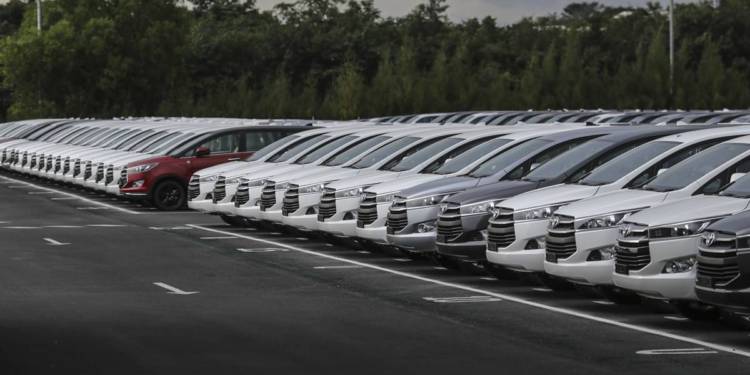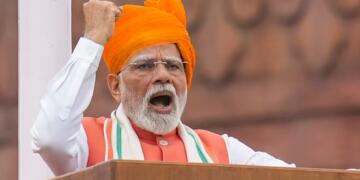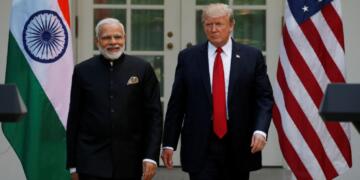Toyota, the second largest automobile manufacturer in the world after Germany’s Volkswagen, is set to halt expansion in India given ‘we don’t want you’ taxes by the government. The company which produces more than 10 million vehicles per year in countries around the world and employs around 3.6 lakh people, is not happy with the high taxes (28 percent GST+levies) imposed by the Indian government on the automobile sector.
Shekar Viswanathan, vice chairman of Toyota’s local unit, Toyota Kirloskar Motor, said that high taxes imposed by the government makes car and motorbike ownership out of reach of many consumers, and therefore the companies do not scale up production which results in lack of job creation.
“The message we are getting, after we have come here and invested money, is that we don’t want you,” Viswanathan said in an interview. In the absence of any reforms, “we won’t exit India, but we won’t scale up.”
The minimum tax on motorbike as well as car is 28 percent and the government imposes various levies on the automobiles which it considers ‘luxury’ taking the total taxes as high as 42 percent in many cases. Toyota wanted to capture the luxury cars space as two very efficient companies- Maruti Suzuki and Hyundai Motors- are already dominant in the budget cars and Sport Utility Vehicle (SUV) segment. But, given the high taxes and upgradation to Bharat Stage Emission Standard VI (BS-VI), the prices went up exponentially and the consumers are shying from the high price vehicle segment.
The government actions coupled with judicial activism are killing the automobile sector. The government jumped from BS III to BS VI within the gap to 3 years, from 2017 to 2020 and the Supreme Court of India banned the registration of BS IV vehicles on the last day of FY 20. BS V was skipped altogether to bring India on par with the global environmental emission norms and this made even the motorbikes ranging 50,000 to 1,00,000 rupees by 10 to 20 percent.
The automobile industry was already reeling under slow down when it was hit by the Coronavirus pandemic induced lockdown. In the first four months of this fiscal year (April-July), the sales of automobiles was around zero given the lockdown and has not picked up on expected scale in the unlock phase.
In the Coronavirus pandemic period, the government increased the taxes on diesel exponentially to bring it on par with prices of Petrol. The prices of fuel were not reduced despite the collapse of the prices in the International markets. The high prices of fuel, coupled with increasing prices of vehicles, discourage people from vehicle ownership.
The market share of Toyota decreased to 2.6 percent in August this year from 5 percent a year earlier. The high taxes and the fuel prices are the reason behind the people’s disenchantment from Toyota vehicles in the post-Corona period.
Toyota Halts India Expansion, Blaming high Taxes. GM quit the country in 2017 while Ford is moving most of its assets in India into a joint venture with Mahindra after struggling for more than two decades to win over buyers. https://t.co/j9tMbcnEJC
— anshuman tiwari (@anshuman1tiwari) September 15, 2020
General Motors left the country’s automobile market in 2017 and Ford its assets in India in a joint venture with Mahindra, which means two big American players in the automobile market are already out of the market. Now, the Japanese player is also putting a halt on expansion given the high taxes.
The per capita automobile ownership in India is one of the lowest as there are very few players- Suzuki and Hyundai control around 70 percent of the market- which are able to survive in a high tax regime.
28 percent GST on motorbikes is definitely not sustainable at a time when cost already went up by 10-20 percent due to upgradation to BS-VI. The basic tax is 28 percent and “On top of that there can be additional levies, ranging from 1% to as much as 22%, based on a car’s type, length or engine size. The tax on a four-meter long SUV with an engine capacity of more than 1500 cc works out to be as high as 50%.”
Vishwanathan said that such punitive levies discourage the consumers as well as the producers. “You’d think the auto sector is making drugs or liquor,” he said.
Toyota is utilizing just 20 percent of the capacity on one of its manufacturing units due to low demand, and this definitely hurts the Modi government’s ‘Make in India Plan. Therefore, the government must reduce the taxes on motorbikes to bring them in the 18 percent tax category from 28 percent and end all the levies on vehicles it deems ‘luxury’.





























